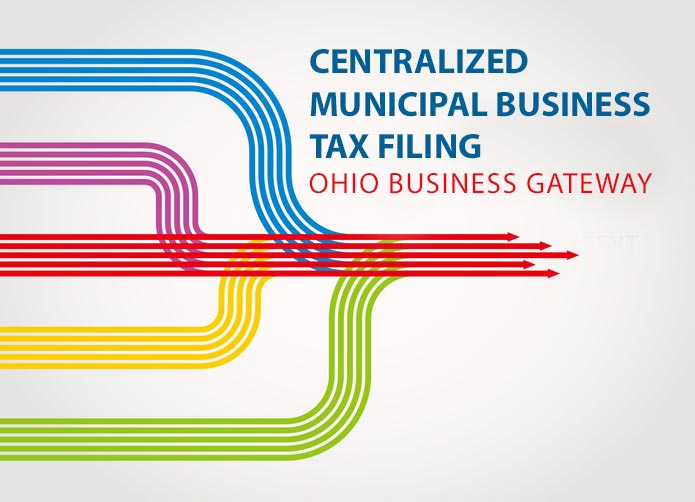Ohio’s Municipal Net Profits Tax Reform Constitutional – Centralized filing provides significant administrative benefits to companies doing business across multiple localities.
 Ohio’s efforts to substantially simplify its municipal income tax regime – a much-needed reform – is permitted to move forward. Ohio instituted municipal income tax reform, which took effect with the 2018 tax year, permitted business to elect to file a centralized return with the Ohio Department of Taxation, among other uniformity measures. Ohio municipalities mounted strenuous objections, feeling as if their right to levy taxes had been impeded, but have been unsuccessful in reversing the state’s efforts to make municipal taxation more uniform and much less burdensome.
Ohio’s efforts to substantially simplify its municipal income tax regime – a much-needed reform – is permitted to move forward. Ohio instituted municipal income tax reform, which took effect with the 2018 tax year, permitted business to elect to file a centralized return with the Ohio Department of Taxation, among other uniformity measures. Ohio municipalities mounted strenuous objections, feeling as if their right to levy taxes had been impeded, but have been unsuccessful in reversing the state’s efforts to make municipal taxation more uniform and much less burdensome.
Ohio and its taxpayers emerged victorious (for now) as the 10th District Court of Appeals upheld Ohio’s efforts to reform Ohio’s harshly criticized municipal income tax scheme. The ruling significantly advances Ohio’s municipal income tax. Instead of being subject to the procedures of each particular municipality, Ohio businesses are able to elect to file a single, centralized municipal net profits return with the Ohio Tax Commissioner through the Ohio Business Gateway. This is estimated to save business owners up to $800 million per year in compliance costs. Calendar year taxpayers wanting to take advantage of centralized filing must opt-in and register through the Ohio Business Gateway by March 1st of the taxable year.
Ohio municipalities argued that Ohio’s General Assembly exceeded its constitutional power under Ohio’s home rule by limiting municipalities’ ability to “levy” taxes. They maintained that Ohio’s centralized filing scheme unconstitutionally limited the municipalities’ power to collect taxes. In construing the term “levy,” the Court turned to 20th century dictionaries and determined that at the time the constitutional provision was drafted, the definition of levy included “the power to raise or collect by assessment.” Based upon the intended meaning of the term, the Court concluded the Ohio General Assembly did not limit ability through a mere administrative centralized filing provision and has authority to limit municipalities’ power to impose and collect taxes in this manner, ruling in the State’s favor. Ohio municipalities no longer have to administer and collect taxes themselves, and benefit substantially from low-cost administrative fee charged by the Department of Taxation for collection. Despite the municipalities’ opposition, reforming Ohio municipal income taxes was good for businesses and should ultimately benefit them.
If you have questions about Ohio’s municipal nets profits tax, registering for Ohio’s business gateway, or any other Ohio tax matters, please contact us.
Attorney Steven A. Dimengo is Managing Partner of Buckingham, Doolittle & Burroughs, LLC and chair of the taxation practice group. He helps clients with complicated tax challenges including Ohio sales/use, income, commercial activity and federal taxes and has represented clients before the Ohio Supreme Court. Steve can be reach at [email protected] or 330.258.6460.
Buckingham Partner Richard B. Fry III is a member of the taxation practice group with a focus on state and local tax compliance and controversies, including Ohio and multistate sales/use tax, commercial activity tax, and personal income tax issues. He also represents clients in federal income tax controversies with the Internal Revenue Service (IRS). Rich can be reached at [email protected] or 330.258.6423
About Buckingham, Doolittle & Burroughs:
Buckingham is a corporate law firm that counsels Middle Market executives and business leaders all over Ohio and beyond. With offices in Canton, Akron, and Cleveland, Buckingham offers clients Business Law Reimagined through sophisticated and practical legal services. Serving the region for over 100 years with nearly 70 attorneys, Buckingham’s mission is to deliver meaningful experiences through the practice of law, exceed expectations in terms of service, counsel and business sense, and to offer continuous value to the industries, communities and clients they serve. See all of our news and updates by visiting our website.
